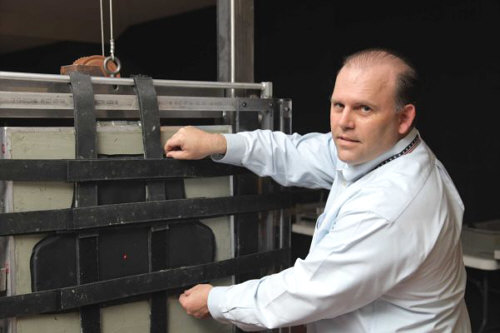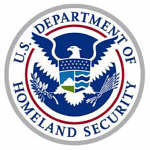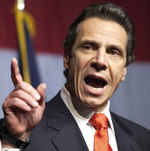

State gun law threatens LI weapons tester
![]()
By Yancey Roy, yancey.roy@newsday.com - June 2nd, 2013
Article source

Photo credit: Newsday / Ed Betz | David Mroczka, Senior Vice President and General Manager of
Dayton T. Brown, Inc., stands in the company's gun testing facility in Bohemia. (May 31, 2013)
ALBANY - Dayton T. Brown Inc. has operated for six decades in Copiague, testing high-level weapons, armor and other equipment for the military, government agencies and private companies. Now, New York's new gun law is threatening part of its business, state lawmakers say.
At least one gun manufacturer says it won't ship weapons to Dayton T. Brown because it doesn't want to break New York's recently enacted ban on "assault" weapons, Long Island legislators say. Other suppliers have similar concerns.
Legislators said New York's hastily enacted gun law has exemptions for manufacturers to possess such weapons, but not testing services such as Brown. They've introduced a bill to cover the company, but it's uncertain when -- or if -- Gov. Andrew M. Cuomo and state leaders will entertain any amendments to the gun law.
 "This is one of those unintended consequences of the SAFE act," said Assemb. Andrew Garbarino (R-Sayville), referring to the gun control law Cuomo pushed through in the wake of the Newtown, Conn., school massacre.
"This is one of those unintended consequences of the SAFE act," said Assemb. Andrew Garbarino (R-Sayville), referring to the gun control law Cuomo pushed through in the wake of the Newtown, Conn., school massacre.
Critics have said the law, rushed to a vote in January in the State Legislature hours after it was printed, has a number of holes. Among the most noted complaints: Film production companies have expressed fears that it could prevent them from using "prop" weapons and high-capacity magazines. Retired law enforcement officers worry that it doesn't expressly continue an exemption they had under the state's previous assault weapon law.
The issue of weapons testing has had little notice so far.
Currently, testing is not treated as part of the weapons manufacturing process under the law, said state Sen. Phil Boyle (R-Bay Shore), who is sponsoring a bill along with Garbarino to change that. Boyle said that currently if a representative of the weapons manufacturer is on-site at Dayton T. Brown, no violation of the gun law would occur. But manufacturers "don't want to send someone down to sit around" for weeks while testing is occurring, Boyle said.
'Everybody is on edge'
Manufacturers are now concerned that they will violate the law by shipping weapons to the company, said Robert Single, Dayton T. Brown's vice president and secretary. He said the dilemma jeopardizes a key part of their business.
"We have all the licenses. We've been doing this testing for 60 years," Single said. "We have security clearances to test some very sophisticated weaponry for the military and this [law] makes no sense. . . . Everybody is on edge about it."
Incorporated in 1950, Brown operates at a 300,000-square-foot facility in Copiague and employs about 250, Single said. It offers engineering and laboratory testing, and technical services to commercial, military, government and industrial customers.
 Its website notes that the company tests munitions, ballistics and armor for vehicles such as Humvees, among other services. Touting its status as one of the largest independent testing facilities of its kind, Dayton T. Brown counts all four military branches among its clients, as well as the U.S. Department of Homeland Security and the airline industry.
Its website notes that the company tests munitions, ballistics and armor for vehicles such as Humvees, among other services. Touting its status as one of the largest independent testing facilities of its kind, Dayton T. Brown counts all four military branches among its clients, as well as the U.S. Department of Homeland Security and the airline industry.
Single said that in 2011 the company poured "significant" money into expanding its testing facilities, building a 100-meter range with concrete-reinforced walls and ceilings and high-quality air filters. The investment was designed to give the company an edge on competitors, he said. The company also exposes weapons, bulletproof vests and armor plating to heat, dust and sand to test components.
Under federal regulations, testing isn't considered part of manufacturing -- so Dayton T. Brown doesn't enjoy a manufacturer's exemption to the gun law, said David Mroczka, vice president for the company's engineering and testing division.
"We just want to carve something out to protect our scenario," Mroczka said. "We're not retaining the weapons or selling them. We're just giving them back to the owners."
The view in Albany
To get the bill passed, Garbarino would have to garner support in the Democrat-dominated Assembly. A spokesman for Assembly Speaker Sheldon Silver (D-Manhattan) said the bill hasn't been reviewed yet.
 Cuomo, who would also have to support the measure, has signaled that he's not inclined to reopen the gun control law to amendments. He agreed to carve out an exemption for current law enforcement officers. But the fate of another amendment to cover retired officers isn't clear, even though the Assembly passed it last week. He has reacted coolly to a proposal by his fellow Democrats to exempt film productions from some of the gun restrictions.
Cuomo, who would also have to support the measure, has signaled that he's not inclined to reopen the gun control law to amendments. He agreed to carve out an exemption for current law enforcement officers. But the fate of another amendment to cover retired officers isn't clear, even though the Assembly passed it last week. He has reacted coolly to a proposal by his fellow Democrats to exempt film productions from some of the gun restrictions.
A Cuomo spokesman said the governor hasn't reviewed the Garbarino-Boyle bill.
The legislature passed the gun bill one month after the Newtown shootings. Though it enjoyed broad support, critics say it was enacted in haste as New York tried to be the first state to act. Cuomo said the law was in the works for a long time and has touted it as one of his signature achievements.
Boyle was one of 43 senators to vote for the bill, although he later said that was a mistake. He said the process lacked transparency and the bill contained oversights. The situation with Dayton T. Brown is one of those, he said.
"Obviously, there needs to be more technical changes to the SAFE Act," he said. "This proposal falls under that heading."
![]()




































